Habitat for Humanity Uganda celebrates 40 years of community transformation through shelter
There are about 7.3 million households in Uganda occupying 6.2 million units with an average household size of 4.6 persons. It should be noted that the national occupancy density is estimated at 1.1 households per housing unit. Uganda has a total backlog of 1.6 million housing units and of this, about 210,000 units are in the urban areas and 1.395 million in rural areas.
In a year about 40,000 good housing units are constructed in the rural areas and 20,000 in the urban areas but the need for new housing is estimated at 200,000 housing units of which 135,000 are in rural and 65,000 in the urban areas.
Habitat for Humanity Uganda contributes to this housing deficit through four tailored programming approaches; Vulnerable Group Housing, Provision of Housing Finance, Market Based Technical Assistance and the Urbanization Program that gives support to local governments.
In a year about 40,000 good housing units are constructed in the rural areas and 20,000 in the urban areas but the need for new housing is estimated at 200,000 housing units of which 135,000 are in rural and 65,000 in the urban areas.
Habitat for Humanity Uganda contributes to this housing deficit through four tailored programming approaches; Vulnerable Group Housing, Provision of Housing Finance, Market Based Technical Assistance and the Urbanization Program that gives support to local governments.
The Vulnerable Group housing program has to date supported over 10,000 vulnerable rural families with social housing that comes with a VIP latrine and shower stall thereby enabling about 60,000 individuals to have a place they call home.
The Provision of Housing Finance program has supported low-income households with home improvement loans and so far over 30,000 families in Uganda have benefited from this program.
For 40 years now, Habitat for Humanity Uganda has built and improved over 40,000 houses-transforming the lives of over 240,000 vulnerable families hence contributing to a 1.67% reduction in the housing deficit in the country.






The idea of habitat for humanity was coined by a farmer and Biblical scholar Clarence Jordan in Georgia, USA.
However, it was Millard and Linda Fuller who eventually turned the idea into a housing organisation called Habitat for Humanity International. The concept was about partnership housing where those in need of adequate shelter worked side by side with volunteers to build decent and affordable houses at no profit. New homeowners were supported by no-interest loans from the Fund for Humanity. Millard and Linda Fuller set up the Fund for Humanity through funds from supporters and fundraising initiatives.
In 1973, the Fullers decided to take the Fund for Humanity concept to the Democratic Republic of Congo where they succeeded in launching a building program. Upon their return to the USA in 1976, the Fullers then founded Habitat for Humanity International.
In 1982, Habitat for Humanity International birthed Habitat for Humanity Uganda. Habitat for Humanity Uganda is affiliated with Habitat for Humanity International and an ecumenical Christian Ministry.
As a leading housing organization in Uganda, Habitat for Humanity Uganda is dedicated to eliminating poverty housing in Uganda. It empowers the most vulnerable communities in Uganda to overcome the chronic lack of decent and affordable housing.
Habitat for Humanity International now works in more than 70 countries in the world and has helped more than 39 million people to achieve strength, stability and independence through safe, decent and affordable shelter.
News and Stories
Meet some of the 40 families that we are fundraising for
Habitat for Humanity Uganda has set October 6, 2022, as the day to mark its 40th anniversary at the first Annual Uganda Housing Symposium(Link to the Annual Uganda Housing Symposium page). The aim of the symposium is to create awareness and promote the right to adequate housing as a basic human right under the theme ‘’Inspiring collective responsibility and action for all.’’
The eight months-long anniversary celebration is geared towards fundraising for 40 new homes, launching the two new low-cost housing prototypes and recognizing Habitat for Humanity Uganda’s partners.
In the months leading to October 6, there will be a sequence of key events and activities including multi-media campaigns, fundraising drives, stakeholder interviews and dialogues, documentation of Habitat’s impact, and volunteer and corporate builds, before climaxing with the ceremonial handover of at least 100 completed houses.





